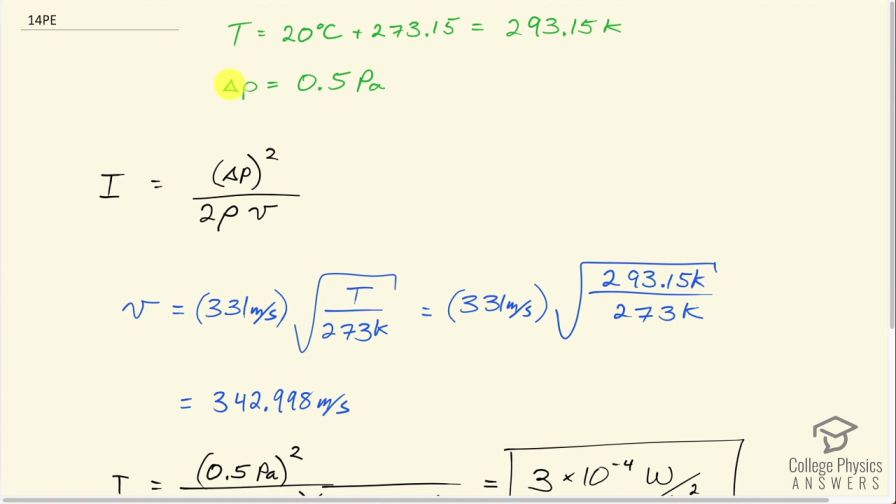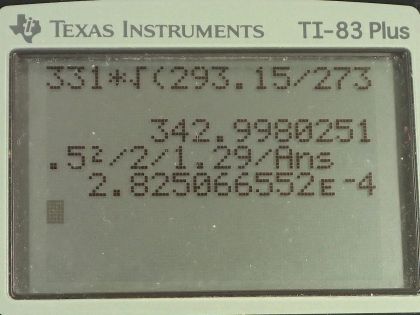Question
A sound wave traveling in air has a pressure amplitude of 0.5 Pa. What is the intensity of the wave?
Final Answer
Solution video
OpenStax College Physics, Chapter 17, Problem 14 (Problems & Exercises)

vote with a rating of
votes with an average rating of
.
Calculator Screenshots
Video Transcript
This is College Physics Answers with Shaun Dychko. A sound wave is traveling in air at a temperature of 20 degrees Celsius and it has a pressure amplitude of 0.5 Pascals; the temperature needs to be converted into Kelvin in order to use in our formula for the speed of sound in air as a function of temperature. So we add 273.15 to 20 degrees Celsius to get 293.15 Kelvin. So we want to know the intensity of this sound wave and that is the pressure amplitude squared divided by 2 times the density of the material its traveling through, which is air in this case, and then times the speed of the sound wave. So the speed of the sound wave is 331 meters per second times square root of the temperature in Kelvin divided by 273 Kelvin— this is formula [17.2] which tells us the speed of sound in air as a function of temperature— so we substitute in our temperature there and we end up with 342.998 meters per second keeping lots of digits to avoid intermediate rounding error, we do rounding only in the final answer. So the intensity then is 0.50 Pascals squared divided by 2 times the density of air, which is 1.29 kilograms per cubic meter— I had to look that up in a table in the textbook— and then multiply that by 342.998 meters per second and that gives 3 times 10 to the minus 4 watts per square meter where we round it to one significant figure since we have only one significant figure in our pressure amplitude.


